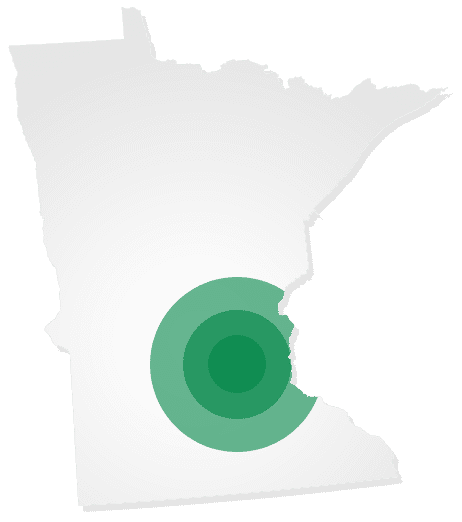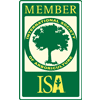Four Things to Know about Winterizing Your Irrigation System
Four Things to Know about Winterizing Your Irrigation System
It’s that time of year again! As fall begins to turn to winter, it is important to consider a couple of critical maintenance steps in order to protect your investment and preserve all of the hard work you’ve performed to achieve a lush and healthy landscape. For those who live in a colder climate, winterizing your irrigation system by removing excess water is of utmost importance.
Importance of Winterizing Your Irrigation System
For many of us, once the temperatures start to dip and the leaves start to fall, our thoughts turn to cozy fires, warm drinks, and all the reasons we love fall. However, if you’re a homeowner, business owner, or property manager with an irrigation system, there’s one more thing you need to add to your winter to-do list: shutting down or getting your irrigation system ready for winter.
Even if you live in an area where the winters are relatively mild, a sudden cold snap can still cause problems, so here are six reasons why you should shut down your sprinkler system this winter.
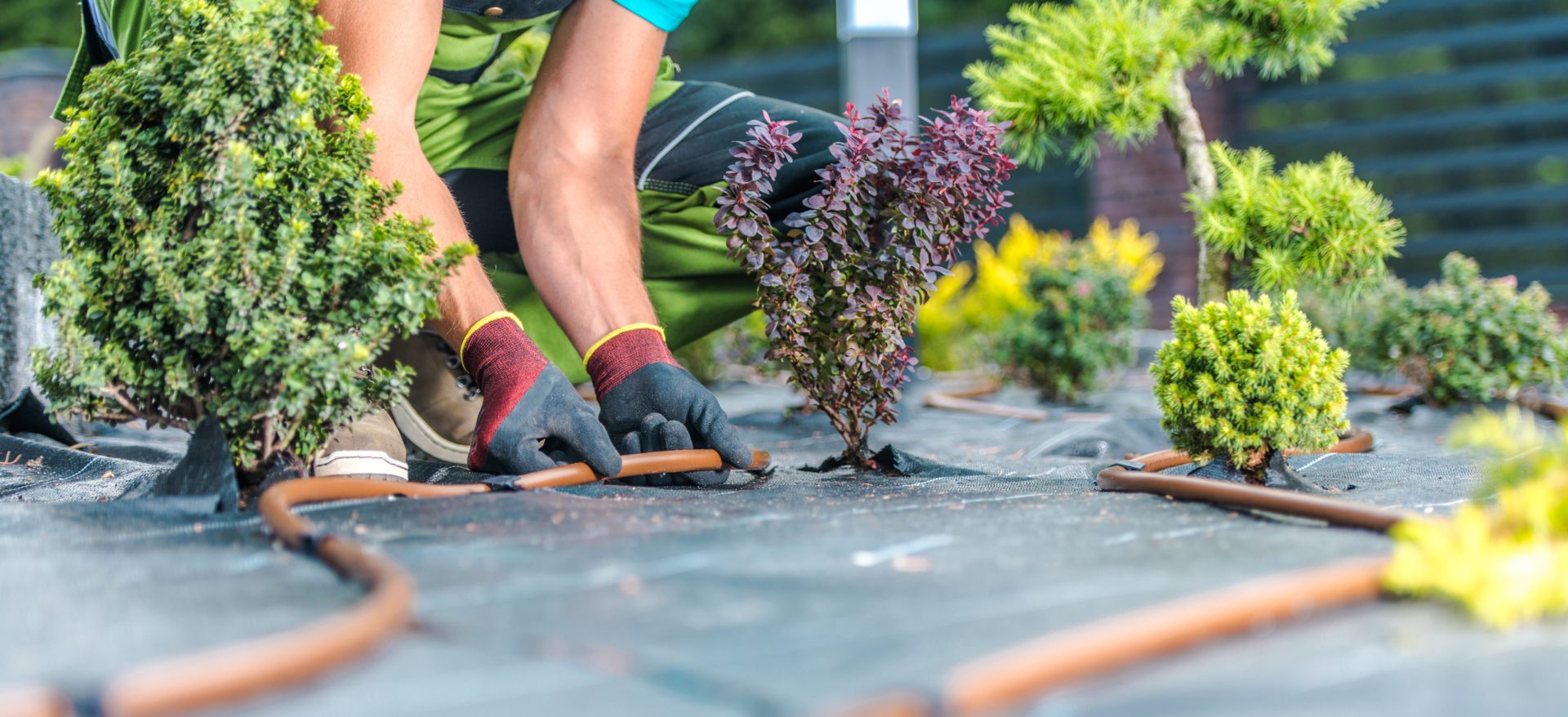
Irrigation System Winterization Steps_All Metro Companies
Prevent Pipes from Freezing
When water freezes, it expands. This expansion can put immense pressure on your pipes, causing them to burst. A burst pipe not only leads to flooding and property damage, but it also means an expensive repair bill come spring. By shutting down your sprinkler system and draining the remaining water from the pipes, you can prevent this from happening.
Protect Your Plants
Overwatering in winter can actually do more harm than good. Excess moisture can lead to root rot, which will damage or kill your plants come spring. By taking the proper precautions you can ensure all of the hard work you’ve dedicated to caring for your plants won’t be in vain.
Reduce Your Water Bill
These days, we can all use tips on saving money, and there’s no better place to start than addressing our monthly bills. Shutting down your irrigation system will put more money in your pocket and ensure that you won’t be paying for excess water that will just sit in the pipes and freeze.
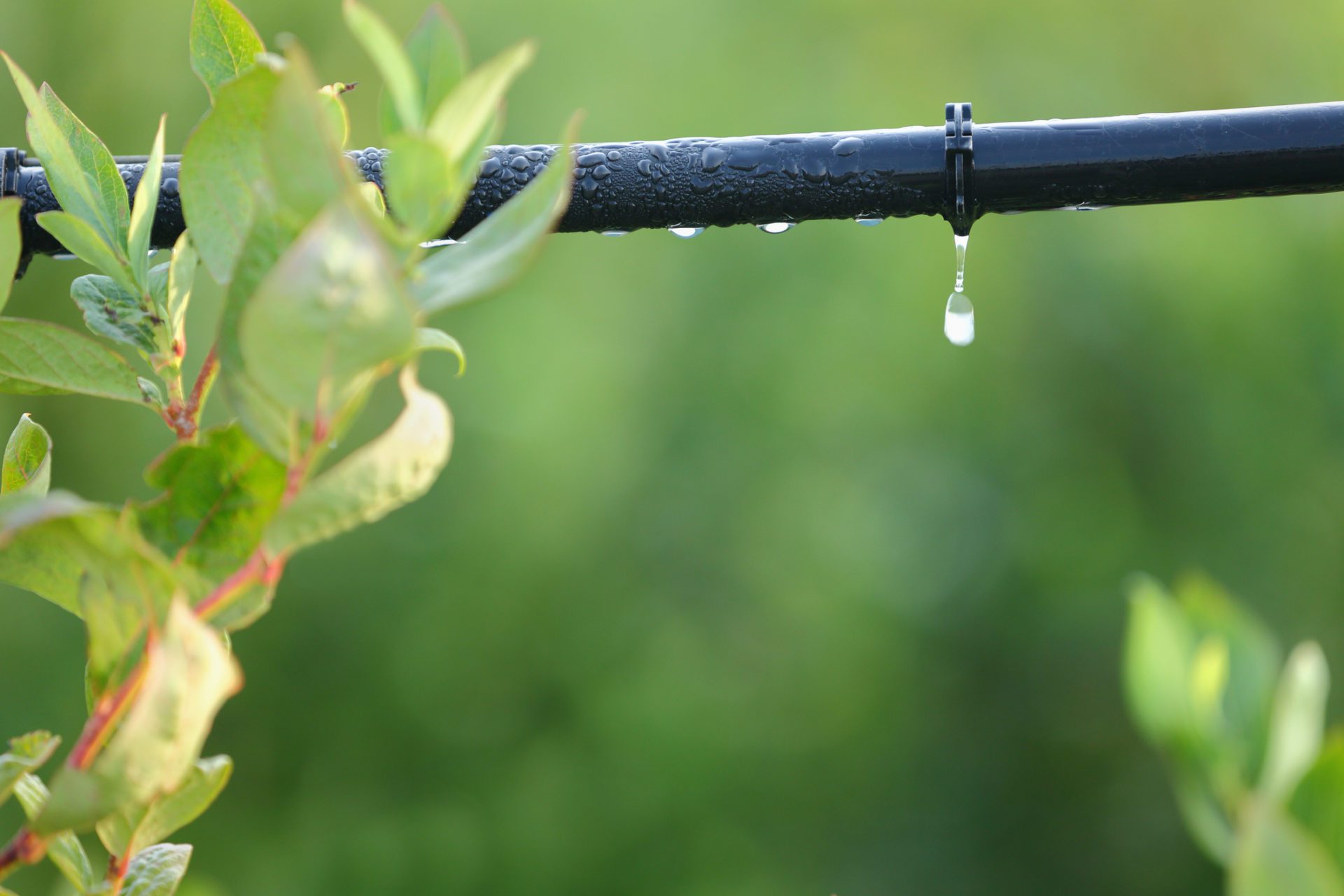
Reduce Water Waste_All Metro Companies
Reduce Water Waste
Runoff from irrigation systems is one of the leading causes of water waste during the winter months. When left on during periods of freezing weather, irrigation systems can cause extensive runoff, which not only wastes water but can also damage plant life and landscapes.
Avoid Costly Repairs
As we mentioned before, by shutting down your sprinkler system and draining the remaining water from the pipes, you can prevent costly damages that would need to be repaired come springtime. These damages aren’t simply associated with sprinkler repair…significant money can be spent just trying to find a leak if one occurs. In some cases, you may not even notice there is a leak until you receive an outrageous water bill.
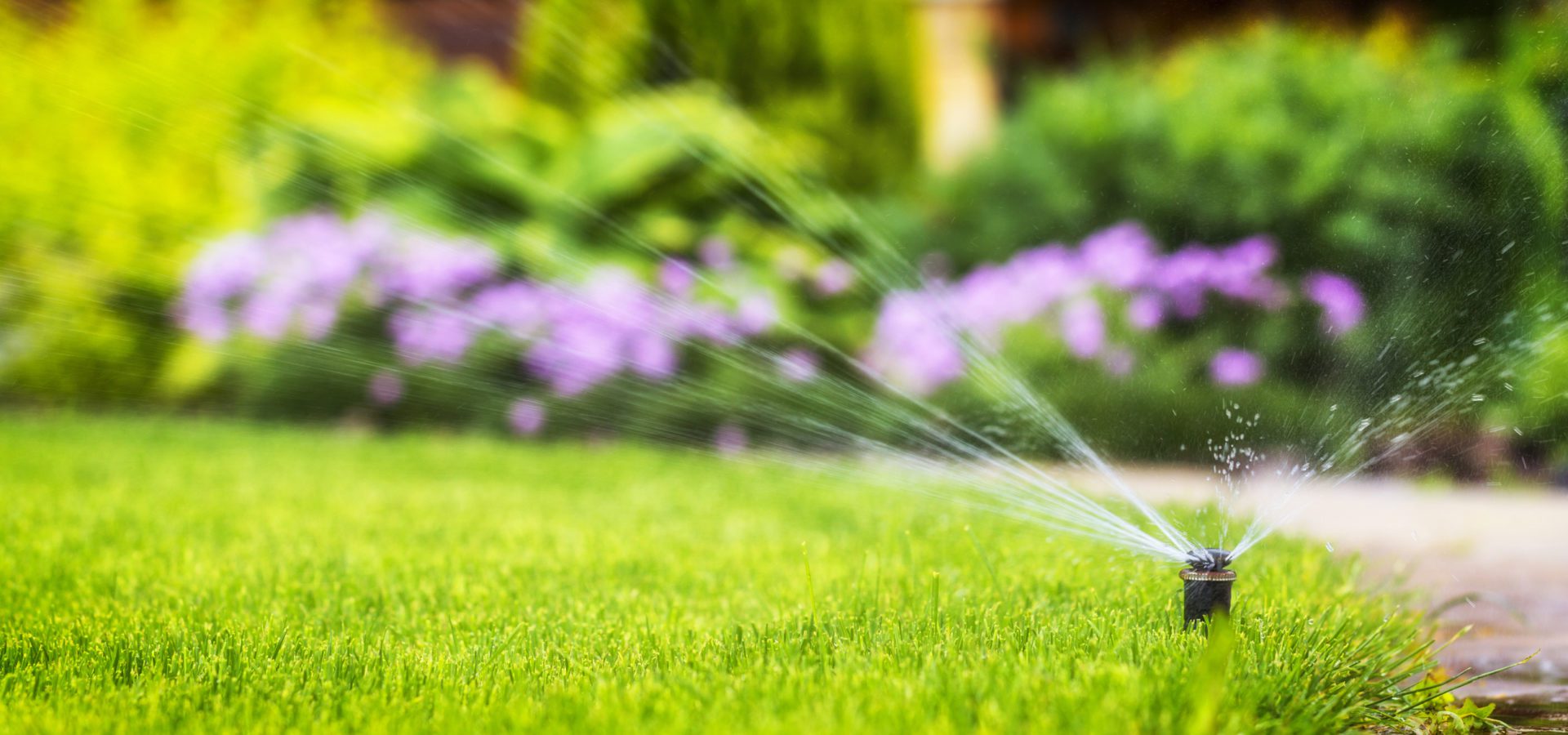
How to get your irrigation system ready for winter_All Metro Companies
How to Get Your Irrigation System Ready for Winter
Now that we’ve outlined all of the reasons you’d want to get your sprinkler system ready for winter, here’s a step-by-step guide on how to prepare your system for winter.
1.) Turn Off the Water Supply and Drain Water
Turning off the water supply to your irrigation system will help prevent any damage that could occur if water were to freeze in the pipes. Trace the piping back from one of your sprinklers to find the later shut-off manual valves. If there is no valve, you may want to have one installed for future maintenance. If you have an automatic sprinkler system, you can also disconnect the power or turn off watering cycles in the settings menu.
Once you’ve turned off the water supply, it’s time to drain the water from the pipes. This step is critical in preventing damage to your system from freezing water in the pipes. To do this, open up all of the manual drain valves or bleeder screws and allow the water to drain out completely. While the manual drain method will work, you may want to use a shop vac to speed up the process. If you have access to an air compressor, it is also a good idea to use the blow-out method with compressed air to expel water from any traps or low spots in the system. You can do this by adding an adapter to a backflow device on the system.
2.) Disconnect and Store Your Sprinkler Heads
Once you’ve used a shop vac or compressed air from an air compressor to drain all of the water from your system, it’s time to disconnect and store your sprinkler heads for winter. Be sure to label each head according to the appropriate sprinkler body and put them in a safe place so you know where it goes come springtime! If you have hard water, this would also be a good time to clean the sprinkler heads from any calcification that has occurred that may be obstructing the spray nozzle and causing reduced efficiency.
3.) Insulate and Protect Pipes from Rust
Once the pipes are completely dry from compressed air, the pipes will be exposed to air. Depending on the type of pipes you have, they may begin to oxidize and rust. To prevent this now is a good time to add an approved rust-preventative solution to the entire system, including any backflow preventers. This will help protect your system from corrosion over the winter months and mitigate the risk of costly leaks down the road. Of course, if you have PVC piping, you can likely skip this step, but be wary of any hidden iron components in your system that could rust.
Finally, insulate your pipes to help prevent any damage that could occur if they were to freeze during the winter months. While you have removed the water, expansion, and contraction of the pipes or the ground surrounding the pipes can result in cracks over time. Therefore, cover any exposed pipes with insulation sleeves or foam wrap to protect them from freezing temperatures. Then, if you have an above-ground sprinkler system, be sure to cover the entire unit with a tarp or plastic sheeting. Pipe insulation and plastic sheeting can be found at most home improvement stores.
Here’s a video to guide you through the winterization process for an irrigation system.
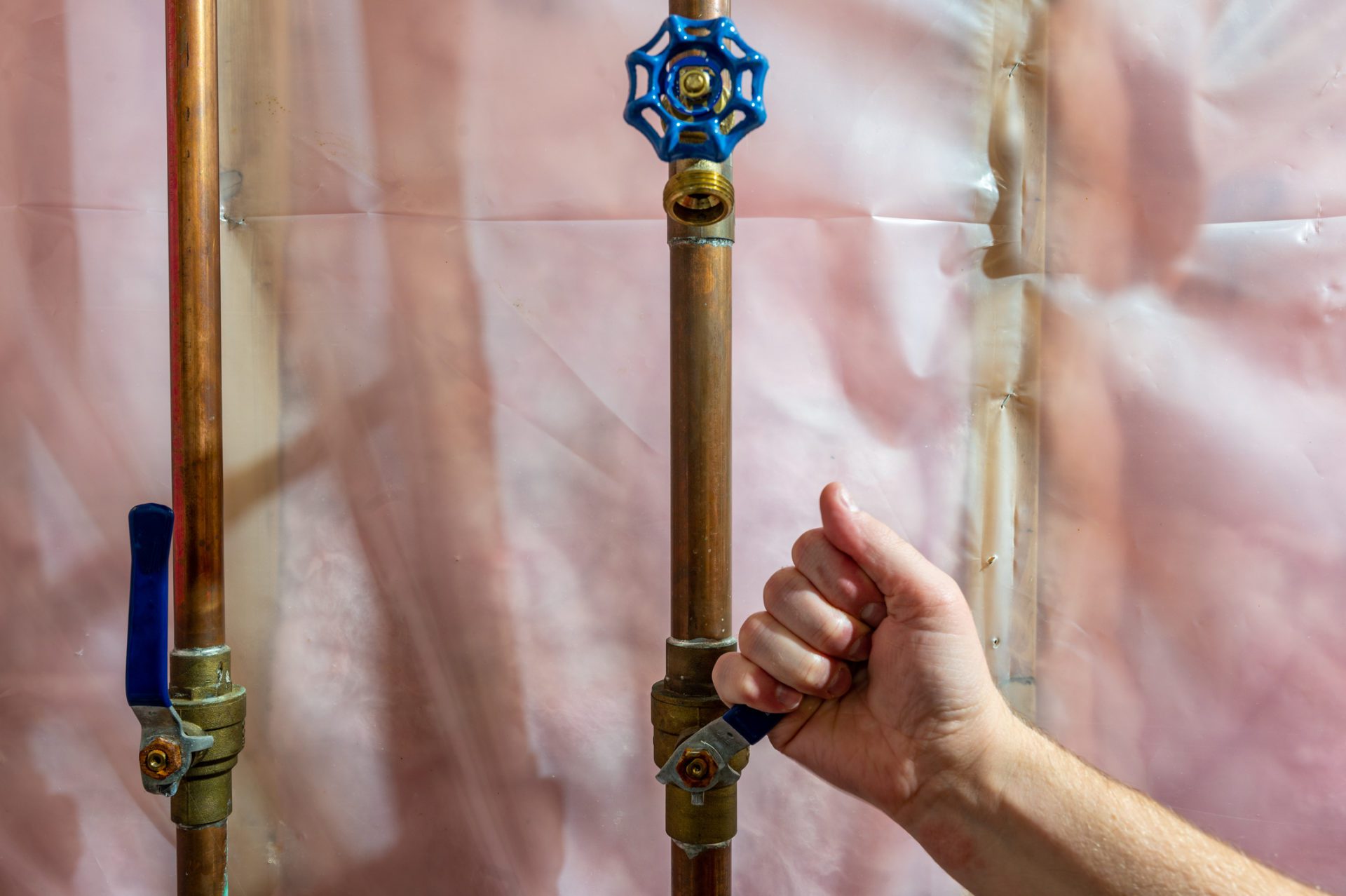
process of shutting and draining water sprinklers for the winter by closing the water line and draining via a low point drain
When to Winterize Your System
Having an understanding of the importance of winterization and how to do it is crucial. Performing it too early can starve your lawn and plants of much-needed water. Too late and the pipes are at risk of being exposed to frost. For most northern climates, the best time is before the first freeze which typically occurs in late October or early November, before the first freeze of the season. However, the exact timing depends on the climate in your area will obviously depend on the climate in your area and subsequent seasonal changes in temperature.
Additionally, the type of irrigation system you have will dictate the timing of winterization. Above-ground irrigation systems are susceptible to frost earlier than below-ground systems. If you’re not sure when to winterize your system, consult the professionals at All Metro Service Companies or check the manufacturer’s recommendations.
Doing it Yourself vs. Hiring a Professional
Now you understand the benefits of winterizing, as well as how and when it should be performed, you may be wondering if you should do it yourself or hire a professional. The answer depends on several factors, including the type of system you have, the climate in your area, and your own level of comfort and expertise.
Winterizing Your Irrigation System Yourself
If you’re the can-do type of individual that isn’t afraid of a project, there are benefits to winterizing your irrigation system yourself. First, it may be less expensive. Second, it gives you a chance to get to know your system better and familiarize yourself with its inner workings. Finally, it can be a fun DIY project that you can complete with family or friends.
Hiring a Professional
You may save money by winterizing your irrigation system yourself, but when you hire a professional you’ll have the peace of mind of knowing the job was done right. It takes time and effort to winterize properly, and if you’re not comfortable working with the necessary tools or don’t have much experience with home improvement projects, you may want a professional. This is especially true for in-ground systems, as in-ground systems are more complex and can be easily damaged if not properly winterized.
Additionally, if something goes wrong during the process, you may end up causing more damage to your system—and that could end up costing more in repairs than if you hired a professional from the start. The pros have expertise to complete the job quickly and efficiently. They also have access to specialized tools that might not be available to the average homeowner. A common question business owners and homeowners alike ask is, what’s the average cost of hiring a pro to help shut down an irrigation system? The average cost to winterize your sprinkler system can be between $75 and $150, depending on the number of sprinkler zones you have.
Lastly, if you live in an area with harsh winters, you’ll need to take extra steps to ensure your system can withstand the elements. Hiring a professional who knows how to properly winterize your sprinkler system will save you time, money, and frustration in the long run.
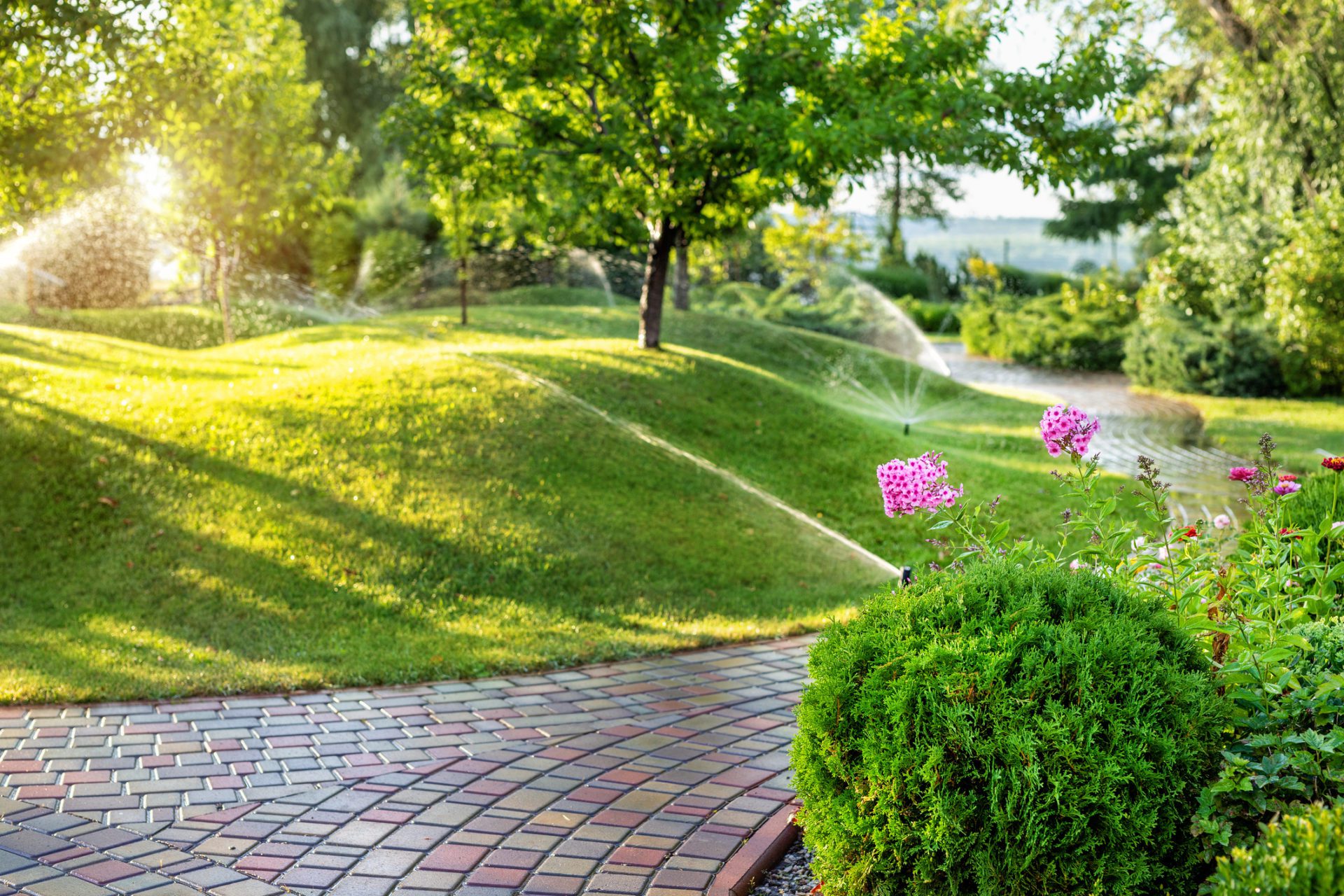
4 things to know about winterizing your irrigation system
Ready? Set? Get Your Irrigation System Ready For Winter
This winter, add system shutdown or winterization to your to-do list! Shutting down or winterizing your irrigation system might seem like a hassle, but it’s a simple way to protect your investment. By taking a few simple precautionary measures, you can save yourself a lot of time, money, and headaches down the road and you can keep your irrigation system running smoothly.
In most cases, especially if you’ve never done it before, hiring a professional is the best option as they will know how to properly winterize your system and prevent costly damage. If you decide to do it yourself but run into difficulties along the way, don’t hesitate to call in a professional for help—better safe than sorry!
As always, the professionals at All Metro Service Companies are happy to assist you in any way we can. Contact us today for a free winterizing estimate.
Check out another article about the importance of irrigation blowouts in the Twin Cities.
Looking for more information?
Call us today at 763-789-4788 to receive a free estimate on any of our property services.
Free Estimates
on all Services
Use the form below to request a free estimate on any of our services.
